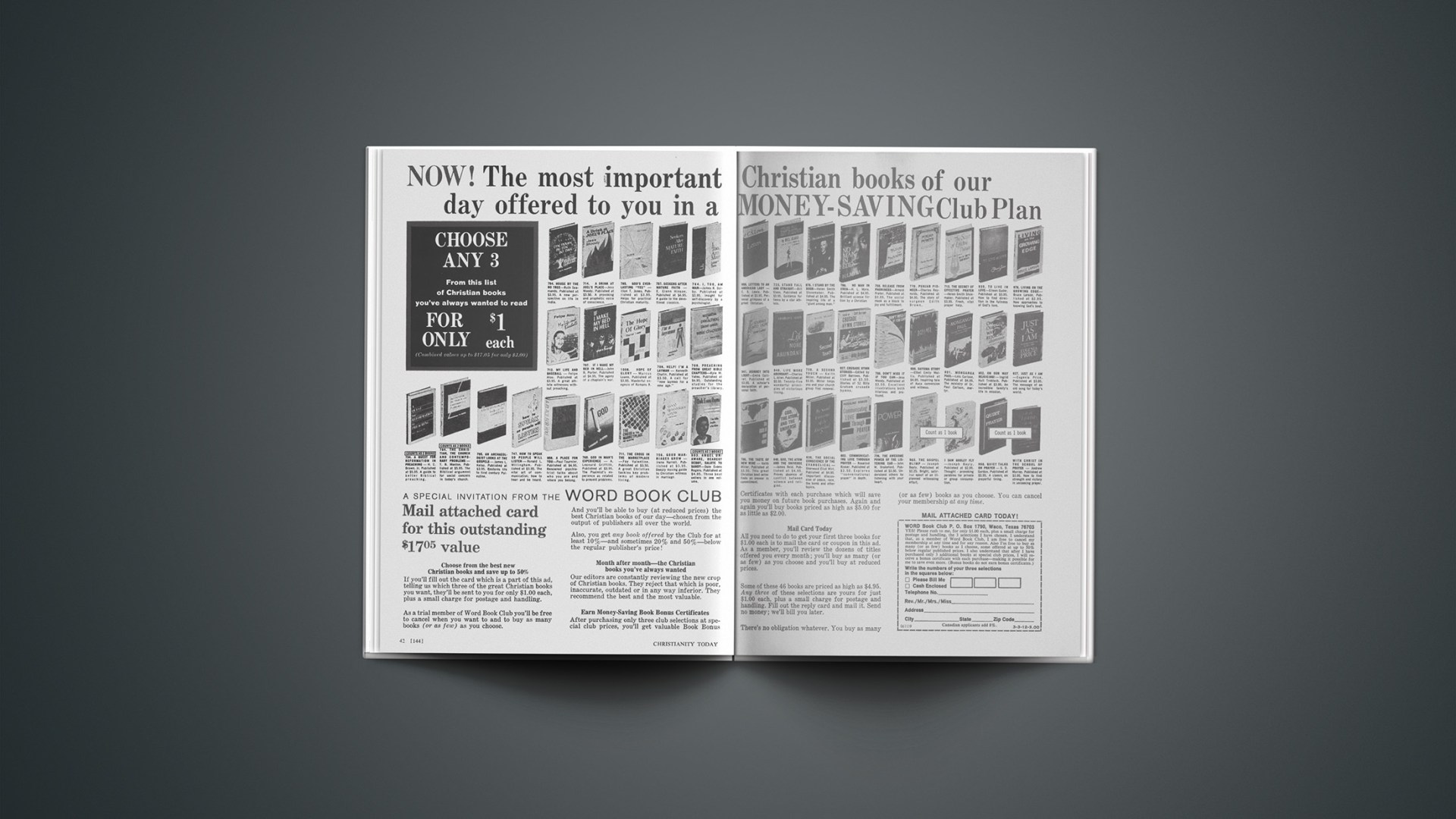“We kept speaking over and over again of the necessity for finding ways to identify with genuine human needs,” summarized moderator Dr. Arthur R. McKay at a conference last month on “The Relevancy of Organized Religion.” The list of delegates read like a Who’s Who in Religion; they had gathered to prepare an agenda for the future of their specialty.
One of the six blacks among the forty-eight delegates had linked religion’s relevance to “genuine human needs.” “Organized religion has been extremely relevant to me personally,” said the Rev. Andrew J. Young, executive vice-president of the Southern Christian Leadership Conference. But he went on to question the relevancy of the conference and others like it. Its cost, ($75,000 to $100,000), he said, would provide the basis for food and housing for an entire Southern county.
One of the three youth delegates to the Hudson, Wisconsin, conference had linked relevancy to the needs of his generation. “Who are you,” asked Union Seminary (New York) student Mark Hanson, “to draw up an agenda for us who have to live in the future?” Echoed Rabbi Marc Tannenbaum: “Youth have simply turned us off.” National Council of Churches president Arthur Flemming suggested involving 18–25-year—olds in religion by having them compose at least one-third of church and synagogue boards.
“We have been reiterating that the Church has ‘too much harness and not enough horse,’ ” continued the summary by McKay, president of McCormick Seminary. What he meant by “horse” was clearly something besides doctrinal orthodoxy. “Theological defenses are no longer definitive,” Rabbi Jacob P. Rudin, president of the Synagogue Council of America, had said. “There is a common religious agenda now and a growing recognition that salvation is corporate.”
The differences in religion, the conference seemed to say, emerge more in culture, history, and life styles than in beliefs. “I’m not afraid of a plurality of truths,” said Yale Divinity School dean Colin W. Williams. “This doesn’t mean that I don’t make distinctions but only that I hold it open that what is true for the Buddhist in his situation may be as valid for him as mine is for me.”
For relevancy in such a situation, concluded McKay, “we need corporate structures stripped down to their bare essentials.” After three days of discussion, those essentials were still out of sight. So was an agenda for the future of organized religion.
Roman Catholic pastor Vincent A. Yzermans, resigned editor of Our Sunday Visitor and one of the delegates, dolefully concluded: “The attempt was regarded by most participants, including this writer, as courageous and heroic—but a glorious failure.”
One minor problem: Nobody had specifically defined “relevancy.” So departing delegates asked the sponsoring George D. Dayton Foundation to fund a committee to continue looking for organized religion’s elusive agenda.










